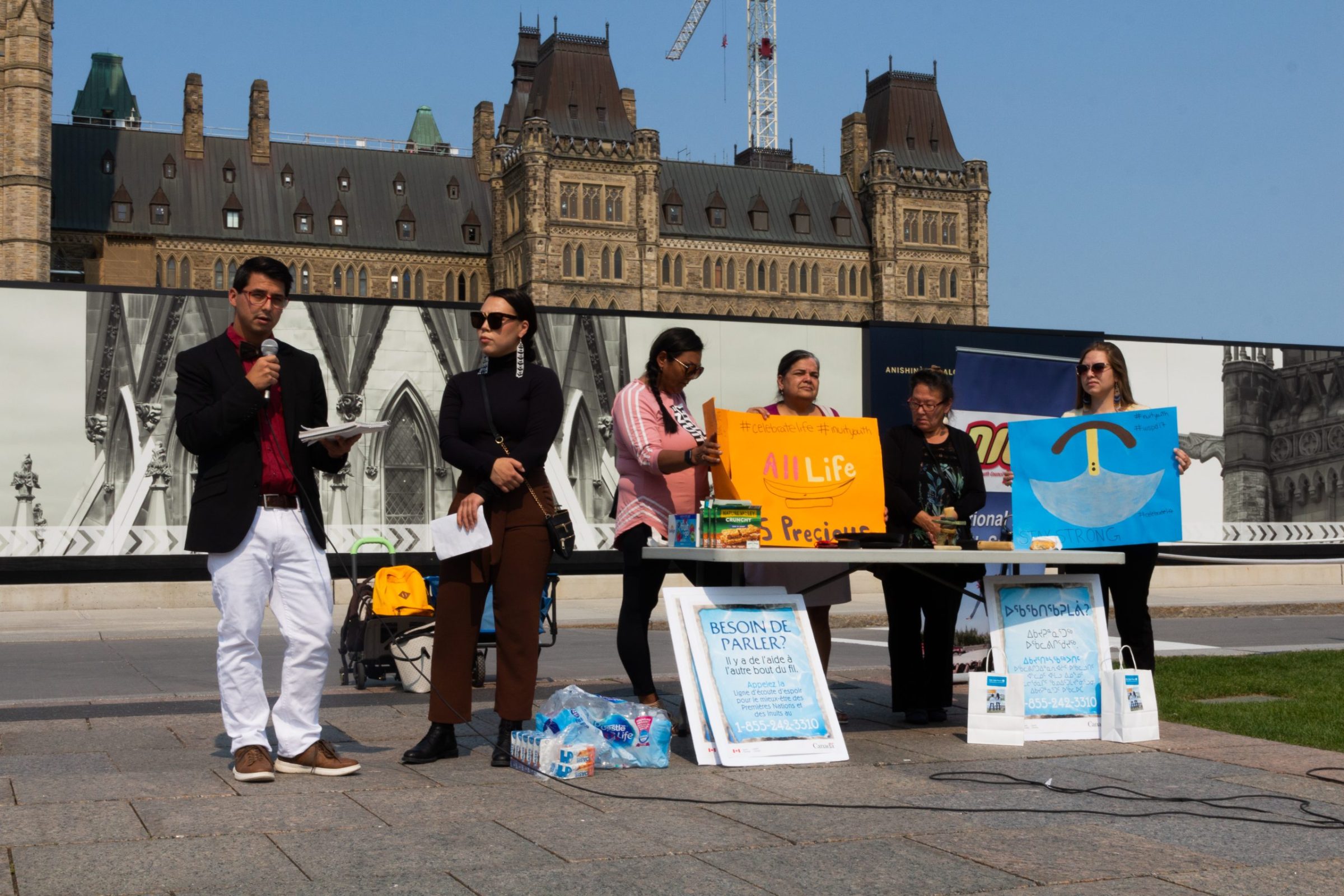‘Stopgap’ measures needed to prevent suicide, says Canada’s National Inuit Youth Council president
Brian Pottle says accessing mental health care is a costly barrier to Inuit.

“Stopgap” measures are needed in the short term to prevent suicides in Inuit communities, says the president of the National Inuit Youth Council.
Brian Pottle delivered his call to action on Parliament Hill in Ottawa during a gathering Friday, prior to World Suicide Prevention Day which takes place every year on Sept. 10.
“A readily realizable stopgap, for example, could be a measure to increase or create subsidized mental wellness travel as well as subsidized mental wellness accommodation,” said Pottle, who has been president of the council since July 2021.
“Creative, practical solutions to address hopelessness are at our fingertips.”
Suicide in Inuit communities is an issue that hits close to home for Pottle, who is originally from Nunatsiavut, and many others. His younger brother, Dylan, died by suicide in 2014.
According to Inuit Tapiriit Kanatami’s National Inuit Suicide Prevention Strategy, communities in Inuit Nunangat have suicide rates that range from five to 25 times higher than the rate in Canada as a whole.
Pottle said he wants to see some temporary or measures that could be instituted quickly, available to all Inuit so others don’t have to experience the loss he did.
“Perhaps, with subsidized mental wellness travel … he could have still influenced his future and not have resigned himself to his despair in that final, undoable way,” he said.
Pottle said giving young people a sense of hope is key to preventing suicide. After all, he said, hope is what got him through the loss of his brother.
“I want us to work towards lighting the qulliq of hope for our Inuit youth because the longer we wait, the fewer youth we have in our communities, the fewer youth we have to pass on traditions and culture, and the fewer future leaders we have to drive change,” Pottle said.
A qulliq was present for Friday’s gathering on Parliament Hill.
Reepa Evic-Carleton, an elder from Pangnirtung who lives in the Ottawa area, was there to light and tend to the qulliq. She wanted to offer a message of hope about how Inuit communities can help each other to heal from trauma and thrive.
“There’s lots of good ways we can learn from listening, teachings, and the wisdom of the elders,” Evic-Carleton said.
“We need to become more proud of who we are as people and where we come from.”
Here are resources for people in distress who need to talk to someone:
Kamatsiaqtut Help Line is Nunavut-specific and offers services in Inuktitut. Phone: 979-3333 for Iqaluit residents and 1-800-265-3333 for other Nunavummiut.
The First Nations and Inuit Hope for Wellness Helpline: 1-855-242-3310 or chat online at hopeforwellness.ca.